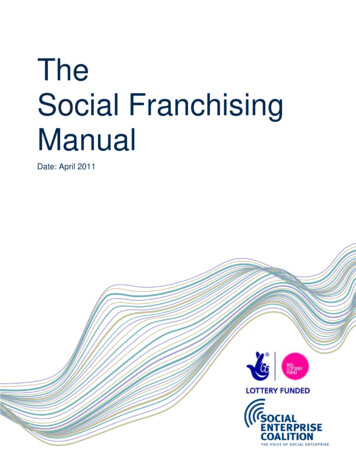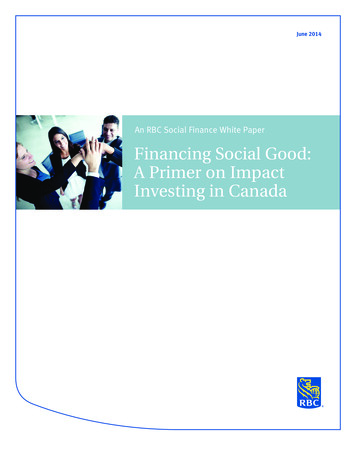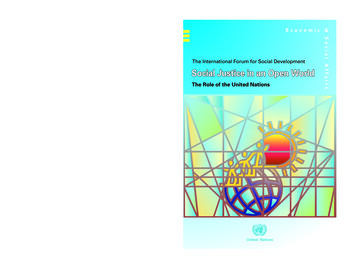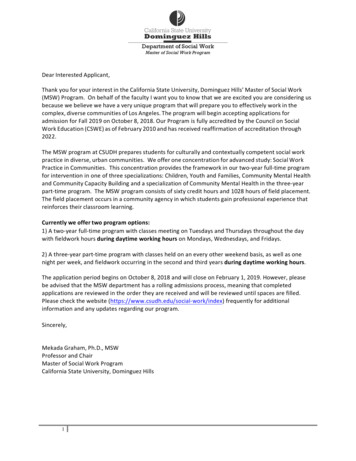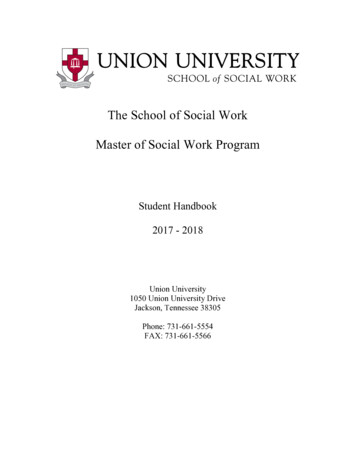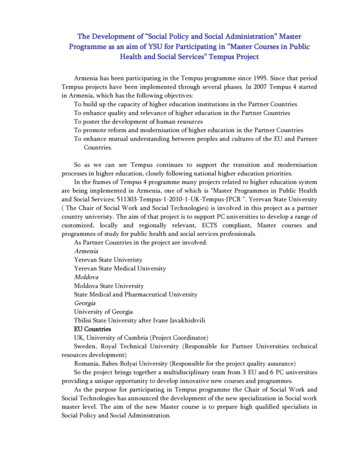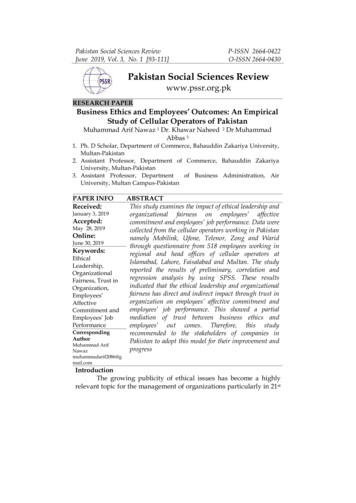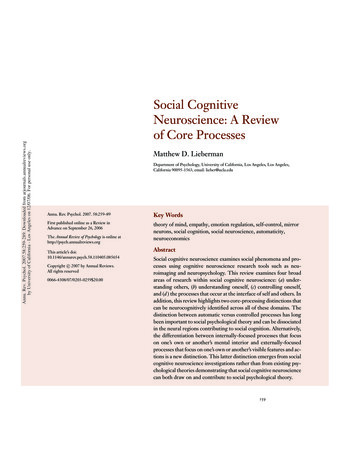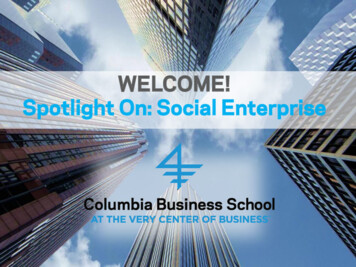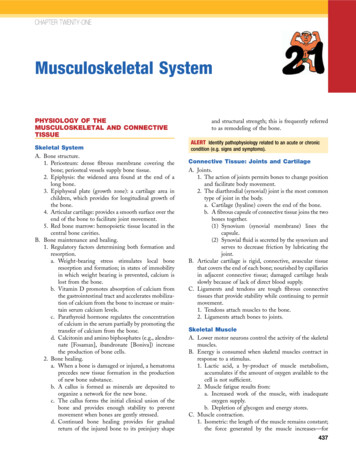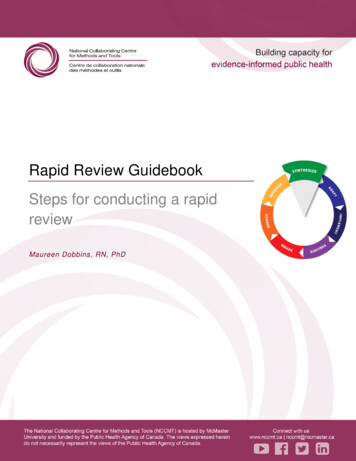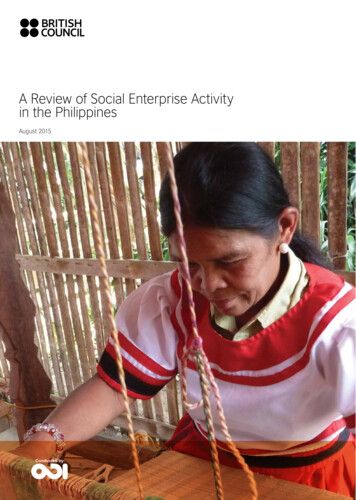
Transcription
A Review of Social Enterprise Activityin the PhilippinesAugust 2015Conducted by:
A Review of Social Enterprise Activity in the PhilippinesCopyright British Council PhilippinesAll rights reserved. Reproduction of this publicationfor resale or other commercial purposes, in anyform or by any means, is prohibited without priorwritten permission from the copyright holder.
A Review of Social Enterprise Activityin the Philippines
A REVIEW OF SOCIAL ENTERPRISE ACTIVITY IN THE PHILIPPINESContents1-2ForewordIntroductionAcronyms and AbbreviationsStudy purposeAcknowledgementsMethodologyDefining social enterprise66Social enterprises andsupport organisations in thePhilippines18Social Enterprise supportorganisations reviewed2Overview of the socialenterprise ecosystemInvestment provision andinvestor preferencesThe Philippines in brief10Policy and regulatory context22414Social enterprises reviewedfor the study24-2728-30Challenges andOpportunities for SocialEnterprise DevelopmentStaff, skills and mentoringPerceptions of socialenterprise in the PhilippinesNavigating regulation andtaxationFinanceDefining social enterpriseand recording impact30Geographical scope of socialenterprise activity36Chambers of commerce,corporations, foundationsand academic support31Social enterprise activityand impact sectors37Government and donorprogrammes andengagement32Business developmentservices, incubation,co-working spaces andaccess to communities34Awareness raising,networks, events andresearch40-4244-49Potential lessons for thePhilippines from the UKand from other AsianCountriesConclusionsSocial enterprise legislationin AsiaAnnex 1: Methodology gridBibliographyAnnex 2: List of intervieweesSocial enterprise legislationin the UK
A REVIEW OF SOCIAL ENTERPRISE ACTIVITY IN THE PHILIPPINESForewordNicholas ThomasBritish Council PhilippinesCountry DirectorThe UK is home to 70,000 social enterprises that employ one million people andcontribute 24 billion every year to the economy. These social enterprises createjobs just like traditional businesses, but also develop innovative and financiallysustainable solutions to entrenched social problems and challenges such ashomelessness, elderly care and unemployment.The UK has created the world’s most fertile environment for social enterprise and investment, and its innovations, policiesand intermediary organisations have been widely studied and replicated in other countries. The British Council’s Global SocialEnterprise programme draws on the UK’s expertise to support the development of social enterprise and social investment inthe UK and in other countries, and to share best practice and create opportunities between them. The global programme waslaunched in China and Indonesia in 2009 and is now active in 24 countries.As part of the global programme, the British Council Philippines has implemented the I am a Changemaker Social EnterpriseCompetition that develops young people’s creativity by offering them training and mentorship, a space to exchange ideas,and opportunities to build their networks with other young social entrepreneurs. Between 2009 and 2014, in partnerships withStarbucks, Intel and the Peace and Equity Foundation, the programme has trained more than 540 young social entrepreneurs, andawarded 3 million pesos in seed funding to 30 social enterprises.The lead author of this report is Emily Darko of the Overseas Development Institute (ODI), one of the UK’s leading independentthink tank on policy and practice for international sustainable development. ODI has worked with the British Council to implementstudies on the social enterprise landscape in Ghana, Bangladesh and, now, the Philippines.ODI’s report looks, in particular, at the ecosystems where social enterprises are most likely to thrive, at the level of support, bothfinancial and non-financial, that is available to them, and at current policies and trends that have an impact on the sector. We hopethe insights, ideas and policy recommendations that it sets out will contribute to the further emergence of a sector that can helpresolve a wide range of social and economic development challenges.
A REVIEW OF SOCIAL ENTERPRISE ACTIVITY IN THE PHILIPPINESAcronyms and AbbreviationsARMMAutonomous Region in Muslim MindanaoCICCommunity Interest CompanyDSWDDepartment of Social Welfare and DevelopmentDTIDepartment of Trade and IndustryEDMEnfants du Mekong (Children of the Mekong)FSSIFoundation for a Sustainable SocietyGDPGross Domestic ProductISEAInstitute for Social Entrepreneurship in AsiaLGT-VPLGT Venture PhilanthropyMFIMicrofinance institutionMSEMicro and small enterpriseMSMEMicro, small and medium enterpriseMVIMicro Ventures Inc.NGONon-governmental organisationOFWOverseas Filipino WorkersPEFPeace and Equity FoundationPhilSENPhilippines Social Enterprise NetworkPRESENTPoverty Reduction through Social EnterpriseSEA-KSelf Employment-KaunlaranSEDPISocial Enterprise Development Partnerships, Inc.SEPPSSocial Enterprise with the poor as primary stakeholdersSEQISocial Enterprise Quality Index
A REVIEW OF SOCIAL ENTERPRISE ACTIVITY IN THE PHILIPPINESAcknowledgementsThis report could not have been completed without the contributions of all the stakeholders – social enterprises and supportorganisations – who were interviewed for the study. We would like to thank all those (listed in Annex 2) who gave their time to dointerviews. We would also like to thank all those who helped organise interviews and provided additional information on email.Particular thanks to Terri Jayme-Mora, Country Manager of Ashoka Philippines and Dr. Antonio La Viña, Dean of the Ateneo Schoolof Government for the books they provided to help the study. Many thanks also to the British Council Philippines team, in particularMaria Angela Flores and Justine Ong, for their support with contacting stakeholders and organising the I Am a Changemakerroundtable, as well as providing information about their social enterprise work and for reviewing and copyediting the report. Thanksto Kofo Sanusi and Eva Cardoso for project support. The inputs of peer reviewers Dr. Lisa Dacanay (of ISEA) and Benjamin Brown (ofSocial Enterprise UK) were very valuable and gratefully received. Finally, thanks to William Smith for project oversight and inputs tothe report draft.IMAGESPhoto credit for cover Anthillpage vi, 2, 6, 7 Chris Ramasolapage 10 Office of Senator Paolo Benigno Aquinopage 21, 34 PRESENT Coalitionpage 8 Hapinoy Venturespage 1, 8 Rags2Richespage 33, 44, 45 Gawad Kalingapage 16 Anthillpage 16 Coffee for PeaceAUTHORSEmily DarkoTheresa Quijano
A REVIEW OF SOCIAL ENTERPRISE ACTIVITY IN THE PHILIPPINES Introduction1IntroductionStudy purposeODI was commissioned by the British Council Philippines to undertake a review of socialenterprise activity in the Philippines. The main goal of this assignment was to make anassessment of the current social enterprise landscape in the Philippines based on asample of stakeholder interviews and online evidence, and to identify the specific skillsneeded by social enterprises, the main barriers to growth and the challenges socialenterprises face as well as recommendations on how to grow the social enterprisespace.
Introduction1This paper seeks to outline the social enterprise landscape in the Philippines and thecontext in which social enterprises evolve. The report maps the social enterprisespace, provides an overview of key government support and regulatory barriers,interested investors, investor attitudes and discussion on the barriers to investment,and information about the support organisations within the ecosystem by categoryand sector. It should be noted that the scope of the study means it is by no means acomprehensive survey of all social enterprise activity in the Philippines. Nor does itclaim to represent all opinion and evidence of social enterprise in the Philippines.MethodologyThe research comprised three main phases: A desk-based study of international and national experiences and good practice on encouraging the growth of the socialenterprise ecosystem A brief desk-based survey of national and local policies and plans relevant to improving social enterprises in the Philippines Consultation with a selection of stakeholders in government, private industry, social investment and academia as well associal enterprise advocacy and network organisations, and a small sample of social entrepreneurs.The review of international and Filipino social enterprise experiences was based on review of literature identified throughoutGoogle searches and prior knowledge. Given the limited academic literature available, grey literature and media sources such asFilipino news websites and blogs were also used to gather information.Stakeholders were interviewed in the Philippines between 24 February and 5 March 2015, in Metro Manila, Cebu City and DavaoCity. Stakeholders were identified by the British Council Philippines, and from the study team (via personal knowledge and internetsearches of recent social enterprise activity), and through asking interviewees for recommendations. A total of 40 people wereinterviewed.Stakeholders were identified using three routes: recommendations from the British Council Philippines, based on past contacts andwork; recommendations from the Filipina co-author of the study, based on her personal knowledge and experience; organisationsidentified online through google searches using terms with the words ‘social enterprise, Philippines’ etc. As such, stakeholderinformation is representative across a number of types of actor, but selection processes are not rigorous to academic standards.A semi-structured interview format was used, with two broad sets of questions – the first for social enterprises and the second setfor support organisations (some of which are social enterprises themselves, but if they are supporting other social enterprises theywere categorised as support organisations). The interviews sought to understand the activities of the organisation; experienceand perceptions of the enabling environment and regulatory situation, finance situation and provision of non-financial support;constraints and opportunities for social enterprise development; and thoughts on the role for the British Council on social enterprisein the Philippines.
2A REVIEW OF SOCIAL ENTERPRISE ACTIVITY IN THE PHILIPPINES IntroductionDefining social enterpriseThis study does not start with a proposed social enterprise definition, nor does it apply a social enterprise definition to the interviewselection and categorisation process, beyond a rough approximation by the authors of whether organisations interviewed orreviewed and termed ‘social enterprise’ are formal or informal.In previous studies (British Council, 2013), social enterprise has been defined in terms of formal and informal, the former referringto social enterprises which recognise themselves as social enterprises and meet nationally or globally recognised social enterprisedefinitions, and informal social enterprises which are organisations that meet social enterprise definitions but either are unaware ofthe term or chose not to refer to themselves as social enterprises.
Introduction3The UK governmentThe UK government defines social enterprise as: “a business with primarily social objectivesdefines social enterprisewhose surpluses are principally reinvested for that purpose in the business or in the community,as: “a business withrather than being driven by the need to maximise profit for shareholders and owners.” The UKprimarily social objectivesalso has a legal provision for social enterprises to register as Community Interest Companieswhose surpluses are(CICs). CICs are required by law to have provisions in their articles of association to enshrine theirprincipally reinvestedsocial purpose, specifically an ‘asset lock’, which restricts the transfer of assets out of the CIC tofor that purpose inensure that they continue to be used for the benefit of the community; and a cap on the maximumthe business or in thedividend and interest payments it can make.1community, rather thanbeing driven by the needto maximise profit forshareholders and owners.”Three further definitions have been considered for this study: the British Council definition (whichit does not seek to impose, but uses to guide work); an ODI definition focused on the businessmodel; and a definition developed in the Philippines and central to social enterprise activity inthe country. Whilst the authors recognise the difficulty of addressing the question of definitionimpartially, it is not the aim of this study to go beyond presenting evidence from stakeholdersabout the four definitions mentioned here.The British Council defines social enterprises as “businesses that exist to address social andenvironment needs, [and] focus on reinvesting earnings into the business and/or the community.”A study by Smith and Darko (2014) tested a definition addressing business model rather thanprofit: a business operation which has social or environmental objectives which significantlymodify its commercial orientation - non-state entity which derives a significant proportion ofits revenue from selling goods or services. ODI work on social enterprise has looked at socialenterprises as hybrid business models, operating in sub-sector niches where state, private andcharity sectors do not or cannot reach (Smith & Darko, 2014; Griffin-El & Darko, 2014; Vu et al,2014).There is no official definition of social enterprise in the Philippines. However, the recentlyA SEPPS is a ‘socialproposed social enterprise bill, discussed in more detail below, was drafted by a coalition ofmission-driven wealthstakeholders, one of whom is the Institute of Social Enterpreneurship in Asia (ISEA), which –creating organisationthrough the leadership of Dr Lisa Dacanay – has developed a definition of what it deems tothat has a double orbe the most important
comprehensive survey of all social enterprise activity in the Philippines. Nor does it claim to represent all opinion and evidence of social enterprise in the Philippines. Methodology The research comprised three main phases: A desk-based study of international and national experiences and good practice on encouraging the growth of the social
